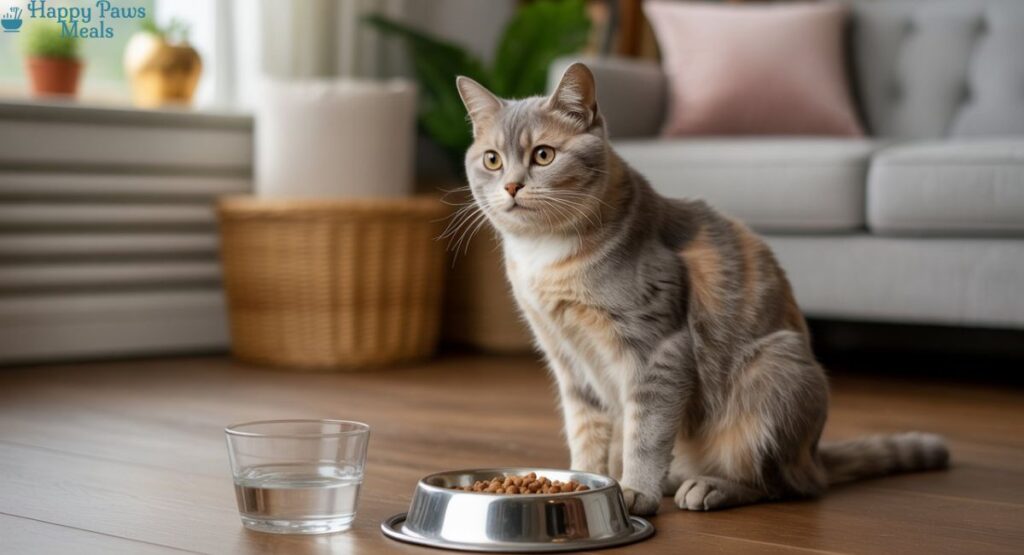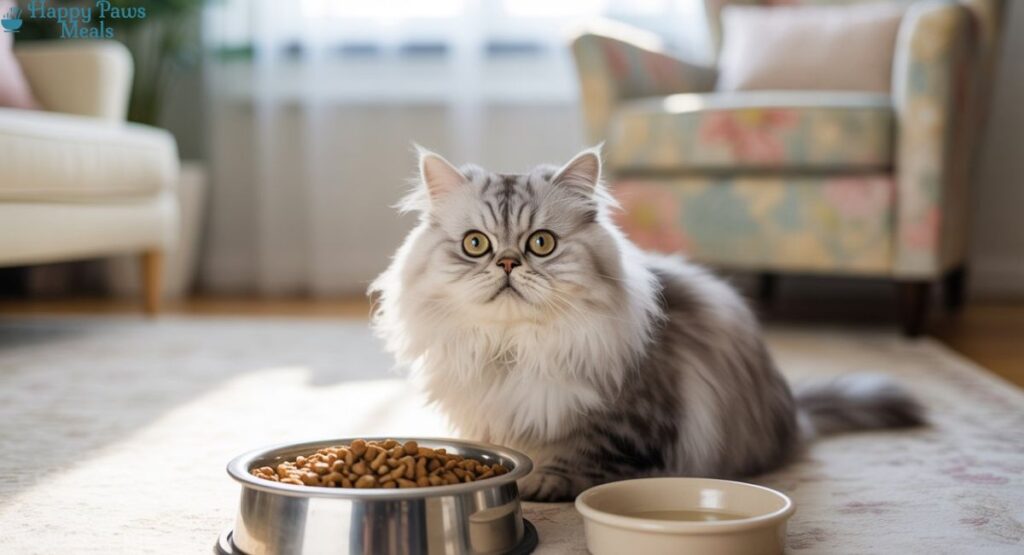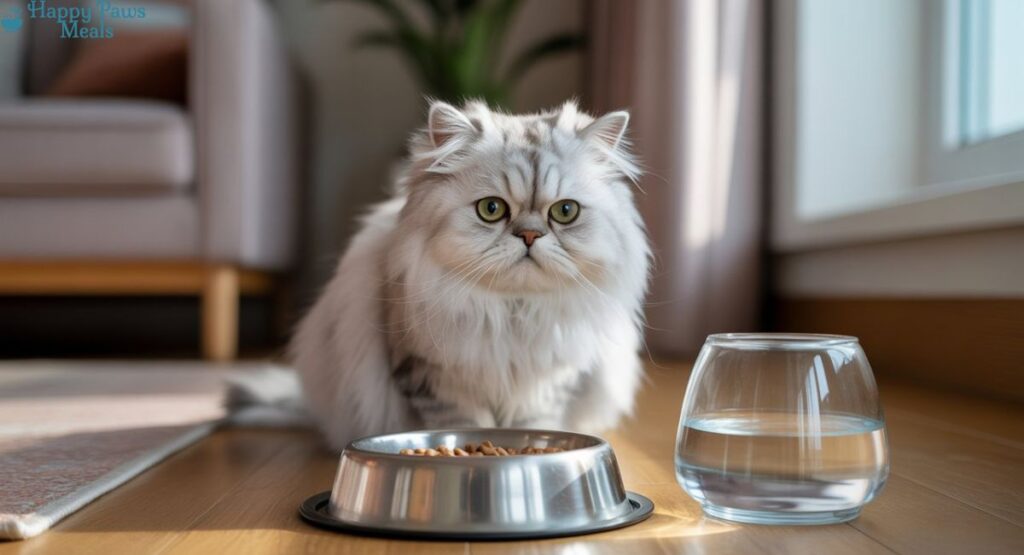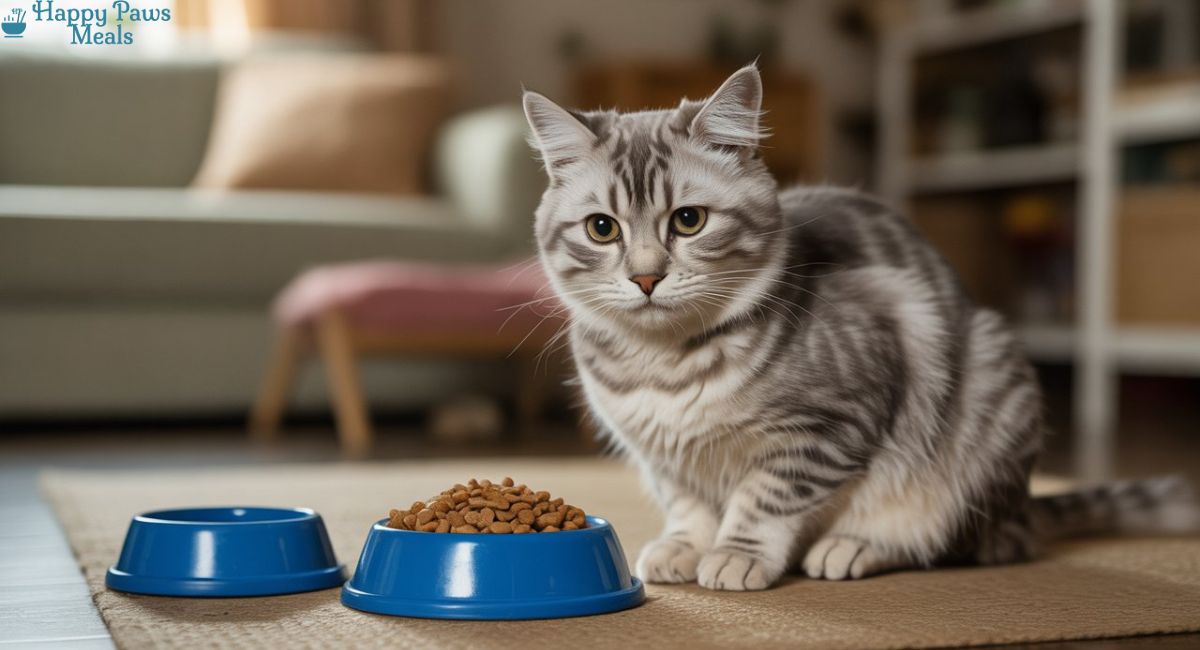Cats are mysterious creatures. They love routines, especially when it comes to food. But sometimes, due to illness, stress, travel, or a picky appetite, your cat might skip meals. As a pet parent, this raises a very important question: how long can cats go without food?
The truth is, while cats are resilient, going too long without eating can be very dangerous for their health. Unlike dogs, cats’ bodies are not designed to fast for extended periods. In this article, we’ll cover everything you need to know—from how long cats can safely go without food, to the risks, signs of trouble, and when you should call the vet.
According to the American Veterinary Medical Association (AVMA), cats can survive longer without food than without water, but going beyond 24–48 hours without eating can be dangerous.
We’ll also explore how dehydration plays an even more critical role, tips to encourage eating, and answers to common FAQs.
Why Food Is Essential for Cats
Cats are obligate carnivores, which means they rely heavily on protein and animal-based nutrients. Their bodies aren’t efficient at breaking down carbs, and they need steady nutrition to maintain:
- Energy levels
- Muscle health
- Organ function
- Immune system support

Sometimes a cat refuses food due to stress, routine changes, or underlying health problems. If you’re struggling with feeding schedules, check out our guide on Feeding Hours for Cats
When cats stop eating, their bodies begin breaking down fat reserves. But here’s the catch: unlike humans, cats’ livers can’t process fat efficiently without protein. This quickly leads to a dangerous condition called hepatic lipidosis (fatty liver disease).
So, How Long Can Cats Go Without Food?
On average, a healthy cat can survive about 1–2 weeks without food if they have access to water. However, this does not mean it’s safe. Serious health risks can develop much sooner:
24 hours → Skipping one day of meals isn’t immediately life-threatening but signals something is wrong. Many owners ask how long can cats go without food, but even 24 hours should raise concern.
48–72 hours → After 2–3 days, the risk of hepatic lipidosis and nutrient deficiencies rises. At this stage, the question of how long can cats go without food becomes critical, and emergency vet care is needed.
3–4 days → Most cats will become very weak, dehydrated, and at high risk of organ damage.
Over 5 days → Extremely dangerous; without vet care, the chances of survival drop rapidly.
👉 The safe answer: Cats should never go more than 24–48 hours without eating.
The Role of Water: More Critical Than Food
While cats can survive longer without food than without water, dehydration accelerates the danger. A cat without water may only last 3–4 days before organ failure starts. This makes it just as important to ask not only how long can cats go without food, but also how long they can stay healthy without proper hydration.
Signs of dehydration include:
- Sunken eyes
- Lethargy
- Dry or sticky gums
- Skin “tenting” (if you pinch the skin and it stays up, dehydration is present)
Always ensure your cat has access to fresh, clean water, even if they’re not eating.
Why Cats Stop Eating
If your cat refuses food, the cause could be minor—or very serious. And since there’s a limit to how long cats can go without food before their health declines, it’s important to identify the reason quickly. Common causes include:
1. Medical Issues
- Dental problems (tooth pain, gingivitis)
- Kidney disease
- Liver disease
- Diabetes
- Gastrointestinal blockages
- Infections or fever
2. Stress or Environment
- Moving to a new home
- Travel or boarding
- New pets or people in the house
- Loud noises or sudden changes
3. Picky Eating or Diet Changes
- Switching brands or flavors suddenly
- Spoiled food or dislike of certain textures
- Boredom with the same food
👉 No matter the reason, don’t wait more than 24–48 hours to seek help, because that’s the window before the risks of prolonged food refusal become dangerous.
Risks of Not Eating in Cats
When cats stop eating, their health deteriorates much faster than dogs or humans. Some pet parents ask how long can cats go without food compared to water, since dehydration is even more serious. Major risks include:
- Hepatic Lipidosis: Fatty liver disease, often fatal if untreated
- Weakened Immune System: More prone to infections
- Muscle Loss: Breakdown of lean body mass
- Dehydration: Leading to kidney failure
- Organ Failure: Especially liver and kidneys

When to See a Vet
You should call your vet if your cat hasn’t eaten for more than 24 hours. Remember, when asking how long can cats go without food, the safe answer is not very long—delaying care can be dangerous. Seek emergency help if:
- Your cat is vomiting and refusing food
- You notice rapid weight loss
- Your cat shows weakness, hiding, or lethargy
- Signs of dehydration appear
Prompt veterinary attention is crucial, since even a short period without eating can lead to serious health complications. Understanding how long can cats go without food can help you spot early warning signs of health problems.
How to Encourage Your Cat to Eat
If your cat is skipping meals, here are safe ways to tempt their appetite before worrying about how long can cats go without food:
- Warm up wet food slightly to enhance aroma.
- Offer strong-smelling foods like tuna or sardines (occasionally).
- Try different textures (pâté, shredded, chunks in gravy).
- Switch feeding location to a quieter, stress-free area.
- Hand-feed small portions to encourage interest.
- Use puzzle feeders to make mealtime engaging.
- Try kitten food—it’s higher in calories and often tastier.
⚠️ Avoid giving only treats, as they don’t provide balanced nutrition.on. If you’ve ever worried about how long can cats go without food, remember that even 24 hours can be risky.
Preventing Food Refusal in Cats
- Stick to a consistent feeding schedule
- Introduce diet changes slowly (over 7–10 days)
- Keep food and water bowls clean
- Reduce household stressors
- Schedule regular vet check-ups
Is Fasting Ever Okay for Cats?
Some pet parents wonder if intermittent fasting or delaying meals is healthy for cats. The short answer: No. Cats are not built to fast. Unlike dogs or humans, they cannot tolerate long gaps in eating. In fact, when discussing how long can cats go without food, the reality is that skipping meals can quickly lead to dangerous fat buildup in the liver (hepatic lipidosis). Even overweight cats should never be put on “starvation diets.” Weight loss must always be gradual and supervised by a vet.
Research shows that how long can cats go without food varies, but prolonged fasting can lead to liver damage.

FAQs About How Long Cats Can Go Without Food
Q1: Can cats survive 3 days without food?
Yes, but it’s highly risky. Organ damage and hepatic lipidosis can develop quickly. When thinking about how long can cats go without food, the safe answer is never more than 1–2 days.
Q2: How long can kittens go without food?
Kittens are even more vulnerable. Unlike adult cats, they should not go longer than 12 hours without eating, as their small bodies need constant nutrition.
Q3: Is water more important than food?
Yes. While considering how long can cats go without food, it’s important to know that water is even more critical. Cats can live longer without food than without water, but dehydration becomes life-threatening in just a few days.
Q4: Can stress cause a cat to stop eating?
Absolutely. Cats are sensitive creatures, and stress is a common cause of appetite loss, which can shorten the safe window of how long cats can go without food.
Q5: What should I do if my cat hasn’t eaten for 2 days?
Call your veterinarian immediately. Do not wait for the problem to resolve on its own, since by this point you’ve already reached the danger zone of how long cats can go without food.
External Links for Authority Sources
- FDA Raw Pet Food Safety Guidelines – Learn about safe handling and risks.
- AAFCO Cat Food Nutrient Profiles – Nutritional requirements for balanced feline diets.
Internal Links Suggestions
- Chewy Cat Food: Best Picks for Healthy & Happy Cats in 2026
- Frozen Raw Cat Food: Benefits, Risks & Feeding Guide
Conclusion
So, how long can cats go without food? While a healthy adult cat may technically survive up to 1–2 weeks without eating, the truth is that serious health risks begin much sooner. Cats should never go more than 24–48 hours without food, as this can quickly lead to dehydration, nutrient deficiencies, and hepatic lipidosis (fatty liver disease). Kittens are even more vulnerable, as their smaller bodies require frequent nutrition to stay healthy.
If your cat is refusing meals, don’t ignore the warning signs. Identify the underlying cause—whether it’s stress, illness, or picky eating—encourage safe feeding strategies, and seek veterinary care if needed. With timely attention, most appetite problems can be resolved before they become life-threatening. In many cases, asking a vet how long can cats go without food is the safest way to protect your pet.
👉 The safe answer: Cats cannot safely go without food for more than 1–2 days.

I’m Awais Manzoor, the writer behind HappyPawsMeals. With years of interest in pet care and nutrition, I research and review cat and dog food to provide reliable, easy-to-understand advice for pet parents.

